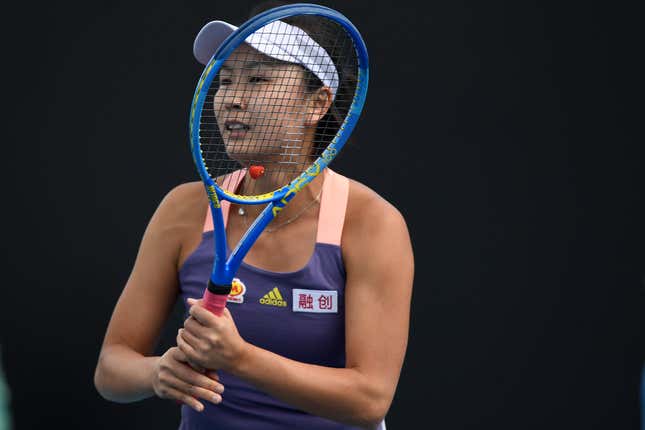Peng Shuai’s Latest Public Appearance Raises More Questions Than Answers
After accusing a high-level Chinese official of sexual assault in November, the tennis player seemed to disappear and sparked the #WhereIsPengShuai hashtag.
EntertainmentEntertainment

Peng Shuai, the Chinese tennis player who largely disappeared from public life last November after alleging a high-level Chinese official had sexually assaulted her, has resurfaced for yet another string of unsettling public appearances at the Beijing Winter Olympics.
According to a statement released by the International Olympic Committee on Monday, Peng joined Thomas Bach, the president of the International Olympic Committee, and Kirsty Coventry, the former chair of the Athletes’ Commission and an IOC member, for a private meeting on Saturday. Details of the meeting haven’t been made public and the IOC has declined to comment on whether it believes Peng’s initial claims about being sexually assaulted. They’ve also declined to comment on whether or not she was speaking publicly under duress from Chinese officials.
Beyond her meeting with Bach and Coventry, Peng delivered an interview with French sports newspaper L’Equipe alongside a Chinese Olympic official, in which she called speculation around her situation a “misunderstanding.”
“Sexual assault? I never said that anyone made me submit to a sexual assault,” Peng said, according to L’Equipe. Of her since-deleted November social media post detailing her allegations against former Chinese Vice Premier Zhang Gaoli, Peng said, “This post resulted in an enormous misunderstanding from the outside world. My wish is that the meaning of this post no longer be skewed.”
-

-

-

-

-

-

-

-

-

-

-

-

-

-

-

-

-

-

-

-

-

-

-

-

-

-

-

-

-

-

-

-

-

-

-

-

-

-

-

-








































